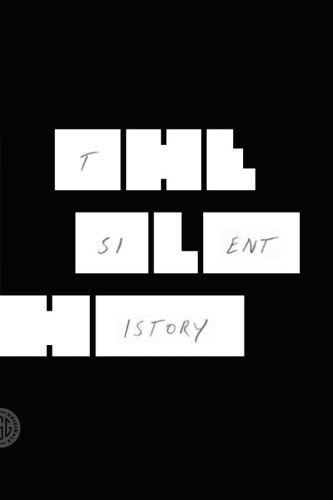
The Silent History
A Novel
- اطلاعات
- نقد و بررسی
- دیدگاه کاربران
نقد و بررسی

Starred review from March 10, 2014
Form follows, explores, and transforms function in this novel, originally written as an iPhone/iPad app and now being published, and holding its own, on the printed page. Short narratives—field reports, log entries, anecdotal memoirs—offer a jigsaw-puzzle oral history starting in the present (2011) and advancing into the future (2044), documenting the evolution of a disaster, as an increasing number of children fail to develop language, not due to physical or mental impairment, but due to indifference. Whether this indifference is the result of drugs, the environment, mindless innovation, or biological mutation (no one can be sure), for “silents,” language has no meaning. A teacher describes futile attempts at classroom management; a politician recounts using the situation to career advantage; a doctor details speech therapy without verbal communication; a New Age groupie confesses to feeling envious. Because they are marginalized, ostracized, and demonized, some silents withdraw into clandestine communities, rather than submit to technology that imposes speech, if not self-expression. Storytelling, both on screen and in print, relies on character, setting, plot, theme, and, of course, language. Three authors work together here to master these elements, presenting an ingenious variety of perspectives and locations that create a richly textured vision of a dystopian future. If the ending is a letdown after so much inventiveness, readers are left with plenty to think about, including the role of language in family and society, personal development and interpersonal relations, and communication and community.

May 1, 2014
The world reels with shock and dismay when an entire generation of children is born without the ability to create or comprehend language.It should be interesting to see how this strange dystopian voyage, composed by a talented triptych of writers, is interpreted by readers who don't know its innovative origins. This is the analog version of a reportedly addictive digital application of the same name that originally published one story a day; it takes the form of an oral history of the first 30 years of a modern plague that leaves otherwise normal children without the ability to speak, read or write. Clearly borrowing heavily from Max Brooks' World War Z, this semi-anthology doesn't include one of the original app's more interesting features: location-based field reports that could only be activated at certain GPS locations. That being the case, one might expect to find a tighter, more cohesive plotline; but the rambling, episodic and extremely brief natures of its dated entries make it hard to become absorbed in its narrative arc. The first half is very much social commentary, with the linguistic nonconformity of the "silents" standing in for the growing ranks of children with autism and highlighting the well-worn bigotry that emerges around those who are different (dubbed here "mutetards" by the ignorant). Many of the early stories are less compelling-the parents who wish so dearly to have the "normal" children they were expecting; teachers who struggle to reach students who can understand math or art but not their instructions; and the scientists delving into the mysterious origins of the illness. It's not until forces start to shape the silent generation that the novel gets very interesting indeed. We learn that the children are evolving their own forms of nonlinguistic communication at the same time scientists start using neural implants to "cure" the silent, who may not be so eager to play along.An intriguing but less propulsive entry in an unusually robust year for linguistic thrillers.
COPYRIGHT(2014) Kirkus Reviews, ALL RIGHTS RESERVED.

Starred review from June 1, 2014
This is billed as "a new kind of novel," and it's true. Started as an interactive online reading experience back in 2012, the former app is now available in traditional printed format. How does such a previously visual narrative translate into a 500-plus page book? Quite well, if you don't mind the multitude of voices. A collaboration between Horowitz (formerly McSweeney's editor/publisher), Kevin Moffett (Further Interpretations of Real-Life Events), and Matthew Derby (Super Flat Times), the sf story is set in the nearish future wherein children are born "unable to create or comprehend language," with the chapters consisting of short testimonials from across America during the years 2012-41. The narrative is paced like a thriller, and the writers do a bang-up job of immersing you in this strange version of America. The prose is deft: "In the end, the pile of things we could carry was small. What of the old life was worth the effort to carry around? The answer was always less than what I'd predicted." VERDICT The online version doesn't compete with the novel, and the experiment succeeds wildly here. Readers of literary page-turners will relish.--Travis Fristoe, Alachua Cty. Lib. Dist., Gainesville, FL
Copyright 2014 Library Journal, LLC Used with permission.




دیدگاه کاربران